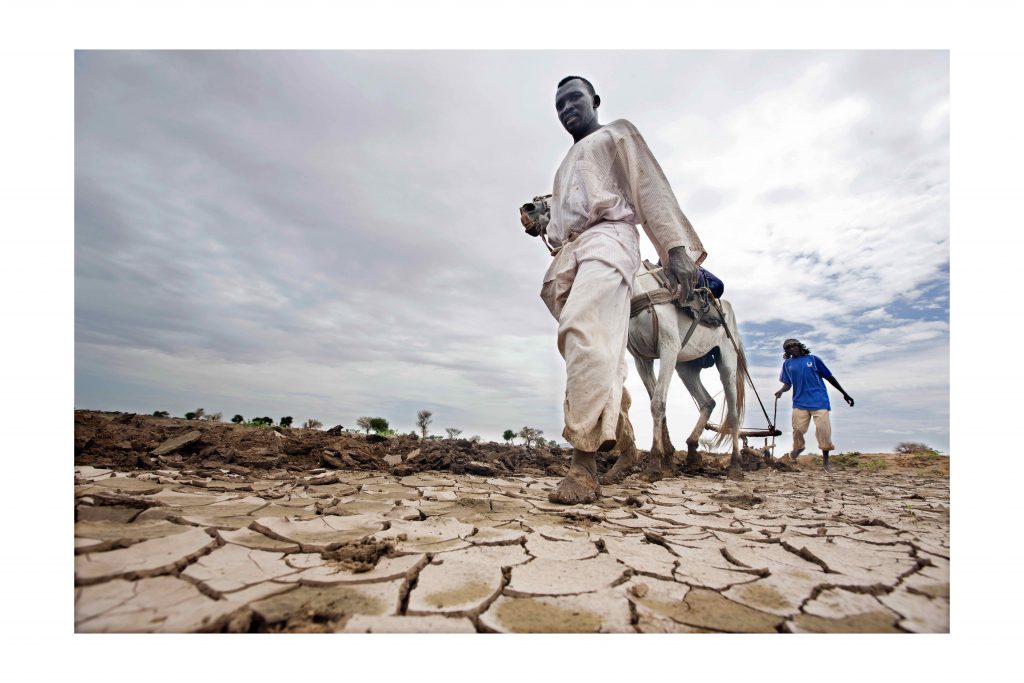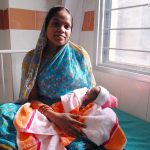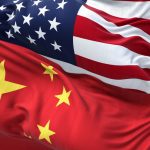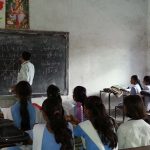Let us consider the anxiety and fear felt by countless individuals and families uncertain of their future and vulnerable to hunger, disease, and isolation. Or, the preventable suffering and death of millions without access to adequate health care. Or, on the other hand, the quiet heroism of underpaid teachers, emergency first responders, and wage workers who are the invisible infrastructure of the economy but who do not enjoy job security or benefits. The COVID-19 pandemic did not create these quotidian conditions—they have too long existed—but it has exacerbated them for millions of Americans and billions of people around the world. What is more, the deadly virus and its devastating economic consequences have extended the circle of vulnerability to untold numbers, who now know what it means to have their livelihoods, dignity and very lives placed at risk. If, as Pope Francis has said, this is a moment to see the poor, we should have an easier time doing so as their numbers multiply and solidarity becomes an experience that is all too visceral. The poor have been always with us, hiding in plain sight, but they are now being revealed to us anew, with an existential urgency no longer possible to ignore.
Dignity and personhood
The pandemic threatens our livelihoods and lives, but can any force on earth truly place at risk our dignity? Various answers to this question arise from different perspectives. Development theorists and practitioners urge governments and international organizations to bring dignity to those persons living below the poverty line by creating jobs, providing education and health care, and securing them from predatory violence. Roman Catholic theology and social doctrine proclaim that the ineffable quality of dignity is inherent in the human person; as children of God, we always already possess a transcendent, irreducible dignity which cannot be bestowed or taken away. Our mission on earth, the Church insists, is not to bestow dignity on the poor (or on anyone else); it is to work tirelessly to provide everyone with the means to achieve the conditions of material and spiritual life commensurate with a dignity they already possess.
Each religious tradition, the scholar Ebrahim Moosa notes, will have a different moral or theological alphabet of personhood that requires close scrutiny; in Islam, what Moosa calls “an ethics and jurisprudence of dignity” emerges from clear teachings of the Prophet Muhammad that suggest a human being carries qualities of sanctity derived from a relationship with God. “It is this human-divine relationship, I believe, that requires one to actively pursue the preservation of human dignity and one’s self-worth as an end,” Moosa writes in a text soon to be published.
Be it ever so fanciful, may we nonetheless imagine a world emerging from the pandemic, chastened but with new eyes to see, in which discussions about what has been revealed to us in the global crisis take center stage? For a consequential moment, might the public sphere resound with debate about our collective obligations to each and every person? Might the question of human dignity, its nature and requirements, no longer be sequestered from mainstream deliberation and relegated once again to the margins of political discourse?
Such a turn in our attention and intentions could well be critical, not merely to the more equitable flourishing of a greater number, but to the survival of the species itself.
“Nothing in this world is indifferent to us”
Five years ago, as the culmination of a process of consultation with natural scientists, economists, development experts, philosophers, ethicists and religious leaders, the Vatican promulgated the encyclical letter Laudato Sí: On Care for Our Common Home. It stands as the signature statement of Pope Francis on the unprecedented challenges facing humanity as the result of pollution, climate change, loss of biodiversity, the concentration of the control of resources, technology and wealth in the hands of the few, and the resulting immiseration of vast urban as well as rural populations. In Laudato Sí the pope laments the dominance of what he calls the “technocratic paradigm,” an undifferentiated and one-dimensional “technique of possession, mastery and transformation” that treats nature as “something formless, completely open to manipulation.” The technique, he continues, “attempts to extract everything possible from things, while frequently ignoring or forgetting the reality in front of us.” Disturbingly, the technocratic paradigm for economic development “has made it easy to accept the idea of infinite or unlimited growth.” It is based “on the lie that there is an infinite supply of the earth’s goods, and this leads to the planet being squeezed dry beyond every limit” (106).
An integral ecology
In place of the technocratic paradigm Francis calls for an “integral ecology” which respects the human and social dimensions of the environmental crisis and acknowledges “how everything is interconnected”—the physical, chemical, and biological aspects of the planet, the network of living species, the means and methods of production and consumption, and the health and well-being of all persons (137). Indeed, Francis exclaims “nothing is indifferent to us” (3). Defying the fact of this interdependence of all things by reducing nature to a warehouse to be ransacked at will, is fatally short-sighted. Ecosystems, the encyclical reminds us, have an intrinsic value and independence apart from how we use them (139).
And “how we use them,” must be guided by the principles of a more integral and sustainable concept and practice of development.
What, then, is integral human development? For the moment, let us define it as the state of a society in which the irreducible dignity of the human person and the cultural and spiritual as well as economic and material requirements of human flourishing are central to political and social life and upheld by the rule of law.
If our efforts to survive the pandemic with our humanity intact and with a realistic hope for the recovery and flourishing of the human family are to be just and effective, they must be guided by a profound understanding of and respect for the inalienable dignity of the human person and a commitment to the requirements of human flourishing, including improved living conditions for the hundreds of millions of people in need of housing, food, clean drinking water, health care, education, jobs, security, and freedom from oppression.
Integral human development
The term “integral human development” is of Catholic provenance, but the ideas and values underlying it find echo in many other religious, philosophical, and wisdom traditions. At its core is the conviction that the dignity of the human person is expressed in work and economic activity—but also in cultural richness, artistic creativity, religious belonging, and spiritual practice. Most profoundly, human dignity is expressed in our relationships with, and obligations to family, community, and, ultimately, to all of humanity.
With these old-new ideals in mind, we aspire to see the debilitating impact of the coronavirus from the perspectives of the besieged women, children, and workers most affected by it; to raise awareness of the radical changes now required in sensibility, lifestyle and political economy; and to explore practical, concrete, achievable means of making these changes and thereby advancing integral human development.
As a step in this direction we at the University of Notre Dame’s Keough School of Global Affairs launch our Dignity and Development blog. We invite robust debate and discussion, new ideas and, happily, great old ideas and solutions that failed to gain traction before the world was so tragically reminded of our common dignity—and our common vulnerability. Let us act now, then: we may not be granted another such “revelation.”
Scott Appleby is the Marilyn Keough Dean of Notre Dame’s Keough School of Global Affairs. A professor of history and scholar of global religion, he is the author or editor of 15 books and the recipient of four honorary doctorates. Appleby’s research examines the various ways in which religious movements and organizations shape, and are shaped by national, regional and global dynamics of governance, deadly conflict, international relations and economic development.
This article is the first in a series of blog posts published by the Keough School of Global Affairs. Dignity and Development provides in-depth analysis of global challenges through the lens of integral human development.



